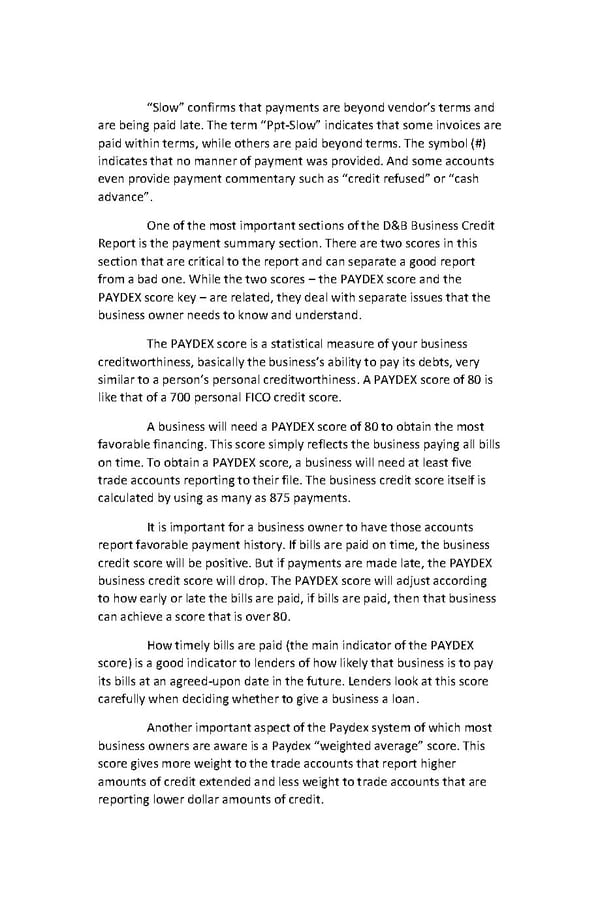“Slow” confirms that payments are beyond vendor’s terms and are being paid late. The term “Ppt-Slow” indicates that some invoices are paid within terms, while others are paid beyond terms. The symbol (#) indicates that no manner of payment was provided. And some accounts even provide payment commentary such as “credit refused” or “cash advance”. One of the most important sections of the D&B Business Credit Report is the payment summary section. There are two scores in this section that are critical to the report and can separate a good report from a bad one. While the two scores – the PAYDEX score and the PAYDEX score key – are related, they deal with separate issues that the business owner needs to know and understand. The PAYDEX score is a statistical measure of your business creditworthiness, basically the business’s ability to pay its debts, very similar to a person’s personal creditworthiness. A PAYDEX score of 80 is like that of a 700 personal FICO credit score. A business will need a PAYDEX score of 80 to obtain the most favorable financing. This score simply reflects the business paying all bills on time. To obtain a PAYDEX score, a business will need at least five trade accounts reporting to their file. The business credit score itself is calculated by using as many as 875 payments. It is important for a business owner to have those accounts report favorable payment history. If bills are paid on time, the business credit score will be positive. But if payments are made late, the PAYDEX business credit score will drop. The PAYDEX score will adjust according to how early or late the bills are paid, if bills are paid, then that business can achieve a score that is over 80. How timely bills are paid (the main indicator of the PAYDEX score) is a good indicator to lenders of how likely that business is to pay its bills at an agreed-upon date in the future. Lenders look at this score carefully when deciding whether to give a business a loan. Another important aspect of the Paydex system of which most business owners are aware is a Paydex “weighted average” score. This score gives more weight to the trade accounts that report higher amounts of credit extended and less weight to trade accounts that are reporting lower dollar amounts of credit.
 Mastering Business Credit (Preview) Page 13 Page 15
Mastering Business Credit (Preview) Page 13 Page 15